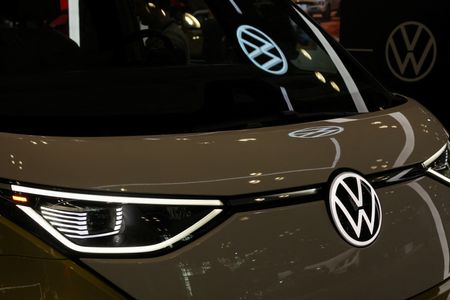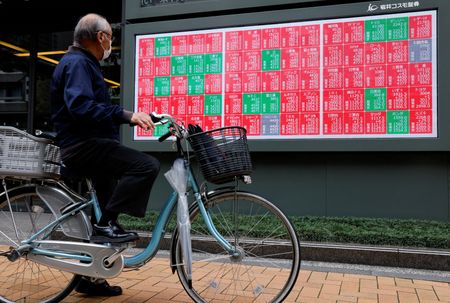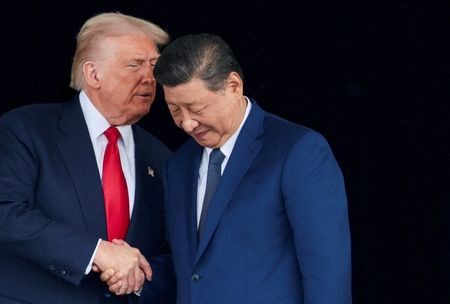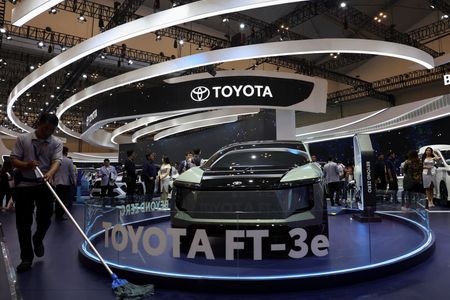SHANGHAI (Reuters) -Volkswagen said on Wednesday that CARIZON, its joint venture with China’s Horizon Robotics, will develop the German carmaker’s first in-house chip to power smart driving capabilities in its next generation of cars for China.
The chip will be used for processing data from cameras and sensors in a car with a single-chip computing power of around 500 to 700 tera operations per second (TOPS), Volkswagen said in a statement. It expected to deliver the product within the next three to five years, it said.
Volkswagen said the move would deepen its research and development capability “in China, for China,” without elaborating if the chip will be used in cars to be sold outside the world’s top auto market.
VW SEEKS TO CATCH UP WITH FAST-MOVING LOCAL RIVALS
Volkswagen has been trying to get on the front foot in China, its largest market, by improving product competitiveness with technologies developed by or with Chinese companies in order to catch up to fast-moving local rivals. It has also expanded a partnership with Xpeng to jointly develop electronics architecture for more models in China.
Volkswagen’s annual sales in China fell to 2.75 million units in 2024 from a peak of more than 4 million units in 2018. In 2023 Volkswagen lost its title as China’s best-selling brand to Chinese rival BYD, which has seen record-setting expansions with its affordable pure electric and plug-in hybrid models in the past five years.
The chip will be manufactured with 3-4 nanometre processing node, the China CEO of Volkswagen’s subsidiary Cariad Frank Han told reporters, with “few options” for foundries capable of mass producing it. VW currently plans to deploy the chip in its third generation of China Electrical Architecture (CEA), he added.
80% of Volkswagen Group cars sold in China by 2030 will be developed with CEA, Han said, adding that the first model of the architecture powered by Horizon Robotics J-series chips will be rolled out at the end of this year.
(Reporting by Zhang Yan and Brenda Goh; Editing by Muralikumar Anantharaman, Kim Coghill and Conor Humphries)











